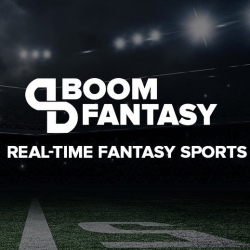
Boom Fantasy’s real-time fantasy sports are different than the contests on DraftKings or FanDuel.
The New York State Gaming Commission wants to ban daily fantasy sports contests which resemble “proposition betting”. To do so, the legislature would have to amend the 2016 fantasys sports laws with new regulations.
The commission is not seeking to ban DFS contests offered by FanDuel or DraftKings. Instead, it wants to ban the kind of games offered by Boom Fantasy and FastPick.
Boom Fantasy is a New York-based company which recently announced $2 million in new investments. FastPick is a form of DFS gaming offered by SportAD in the New Jersey online gaming market. Two different New Jersey gaming sites launched FastPick last month.
What Is a Fantasy Sports Prop Bet?
FastPick’s archetypal example of a proposition bet involves Tom Brady and Aaron Rodgers. In the wager, a player would be asked to choose which player would have better stats in the next weekend’s NFL game.
If the player picked the right choice, they would win. FastPick’s game requires the player to pick correctly 3 to 10 different propositions in order to win a prize. Like a parlay in horse and dog racing, the more winning propositions, the higher the payout. FastPick’s form of prop bets is too close to sports betting for the New York Gaming Commission, though.
Boom Fantasy Prop Bets
Boom Fantasy is slightly different than FastPick. In fact, Boom Fantasy looks quite similar to DraftKings or FanDuel at first glance. Instead of fielding a roster of handpicked players, a team owner on Boom Fantasy’s website is asked to make several predictions on players’ stats for the coming set of games.
Once the player has made their predictions, they receive a list of players, much like one would while playing traditional daily fantasy sports. They can track the progress of these players during the NFL’s set of games. If the stats match predictions, then the player wins. Unlike DraftKings or FanDuel, the team owner is playing against the house and not another opponent.
Game of Skill or Game of Chance?
For that reason, the gaming commission is concerned with the legality of such gaming. Proponents of fantasy sports argue their hobby is a “game of skill”, whereas casino games or sports betting are a “game of chance”. The player-versus-player aspect means you only have to defeat another fan like oneself. When playing against the house, the odds inherently are stacked against the player.
Despite that game dynamic, Boom Fantasy’s fantasy sports contests appear to be legal under a variety of New York gambling laws, as well as the fantasy sports law of 2016. Also, it is compliant with the fantasy sports carveout in the anti-sports betting federal law, the Unlawful Internet Gambling Enforcement Act of 20006 (UIGEA).
New York Gaming Commission on Interactive Fantasy Sports
The New York Gaming Commission agrees, which is why they propose an amendment to ban prop bets. The gaming commission has been eyeing this new form of betting before most people in New York State even heard about Boom Fantasy. While the New York-based DFS company began to receive press coverage in July 2017, it was at the end of June that the gaming commission began taking steps to ban prop bets.
The gaming commission calls Boom Fantasy’s contests “interactive fantasy sports”. The name suggests the commission’s problem with such gaming. Their concerns echo the arguments made against in-play betting on smartphones in Australia. A number of Australian anti-sports betting groups complain that live betting on sporting events is dangerous, because it is rapidfire in nature. A player can enter dozens of contests (or bets) during one single sporting event.
The whole process played out without much fanfare on June 26, as the Gaming Commission announced changes to the fantasy sports law to government interactive fantasy sports contests.
For consideration are proposed rules to govern interactive fantasy sports.
— NYSGamingCommission (@NYSGamingComm) June 26, 2017
Approved: PROPOSAL Interactive Fantasy Sports
— NYSGamingCommission (@NYSGamingComm) June 26, 2017
John Bonacic Opposes DFS Prop Bet Ban
State Senator John Bonacic opposes the policy change. Sen. Bonacic, who sponsored the original fantasy sports bill signed into law in August 2016, wrote a letter to the gaming commission to explain his opposition.
In his letter to the gaming commission, John Bonacic writes, “When I drafted S.8153, 1 intended to ensure enough flexibility to cater to many different styles of interactive fantasy sports gameplay. Competition generated between established incumbents like DraftKings and FanDuel, and innovative startups like Boom Fantasy, will lead the way to a robust industry for all.”
Bonacic Wants to Help NY-Based Business
The state senator, who has introduced several online poker bills to the New York Senate over the past few years, spoke on behalf of Boom Fantasy in particular. Bonacic added, “I fully support and endorse Boom Fantasy’s application for a permit and license as a fantasy sports operator in New York. Their gameplay is exactly the kind of innovation that I envisioned when drafting and supporting this legislation, and I encourage you to approve their application.”
As a NY-based company that has grown substantially in the past year, I believe it is imperative that the company be allowed to operate in its home state.”
Whether Senator Bonacic can influence the New York State Gaming Commission will be determined in the coming weeks and months. Boom Fantasy faces a serious test, as its offices are based in New York. If the gaming commission decides against the new game, then the New York City startup could lose any potential future investors.
